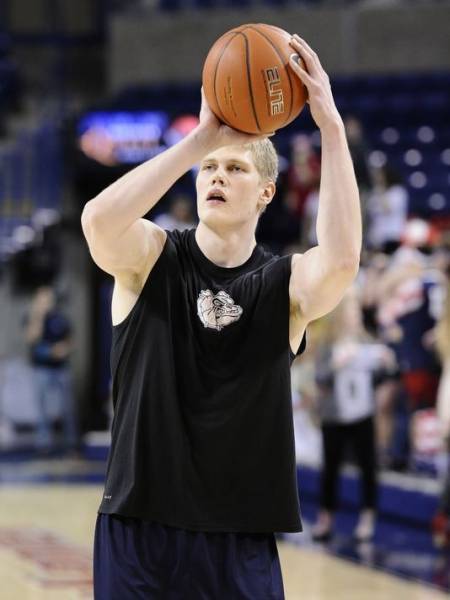Oregon different, still dangerous, without Chris Boucher
Oregon different, still dangerous, without Chris Boucher:- When Oregon’s season twisted, Chris Boucher just rubbed his left knee, got up and kept playing, almost as though nothing had happened.
The senior forward played those final 20 seconds of the first half and then 12 minutes in the second half of the Ducks’ win March 10 against California in a Pac-12 tournament semifinal. Afterward, he complained his knee felt funny. The next morning, further tests revealed a torn ACL. Boucher and the Ducks were stunned — and damaged.
No. 3 Oregon plays No. 7 Michigan in a Sweet 16 matchup Thursday evening at the Sprint Center, and no one would be surprised if the Ducks keep on winning. For a team that is a talented mesh of somewhat interchangeable parts, the loss of a sixth man, even the third-leading scorer, wouldn’t seem debilitating. But Boucher’s impact went beyond the stats.
And the absence of the stringy 6-10, 200-pound senior who averaged 11.8 points a game has had a ripple effect on a team that had reasonable aspirations of winning the national championship. A team that still has them, the Ducks will tell you. But privately, those associated with the team bemoan the loss of a combination of rim protector and rebounder on one end of the floor, legitimate perimeter threat on the other.
“That’s what the media thinks and other people think,” sophomore guard Tyler Dorsey says. “In our locker room, we just go on and play basketball. And whoever needs to step up, we’re gonna be ready.”
Dorsey is echoed by teammates, and he should be. Oregon remains very dangerous, a lineup filled with offensive threats. At least as important is their collective experience, which has produced a potent combination of swagger and mental toughness — see how they avoided an upset against Rhode Island last Sunday in the Round of 32, climbing out of a 10-point hole in the second half.
Dorsey’s dagger of a three-pointer with 38.4 seconds left won it. A little more than a minute earlier, he’d tied the score with a three. And his recent play — five games in a row with at least 20 points — is just another indication of the Ducks’ versatility. Dillon Brooks, the Pac-12’s player of the year, is the Ducks’ undisputed leader, but at any point, Oregon has several options.
BRACKET: Track the tournament
But with Boucher they were better. After winning a part of the Pac-12’s regular-season title, Oregon was thought to be flirting with a possible No. 1 seed. The loss of Boucher might have had as much to do with dropping to a No. 3 as a loss to Arizona in the Pac-12 tournament championship the day they learned he was out. One set of odds to win the NCAA tournament had Oregon at 20-1, 13th of 16 remaining teams and ahead of only Butler, South Carolina and Xavier.
Wednesday at the Sprint Center in Kansas City, Boucher’s teammates expressed disappointment for Boucher, whose rise from a hardscrabble background in Montreal is an inspiring story — and whose basketball potential is only beginning to emerge.
“It was devastating,” said senior guard Dylan Ennis, Boucher’s roommate, who missed part of last season with a foot injury. “I was more hurt for him than for us. Yeah, we lost him and if we lost a couple of games that would be tough, but I understand the journey he’s gonna go through.”
Unquestionably, Oregon’s journey through March has become more difficult.
A year ago Boucher became the only player in Pac-12 history to have 100 blocks (110) and at least 35 three-pointers (39) in a season. This year, he had 79 blocks — 2.5 a game — and 36 3s, while averaging 6.1 rebounds. And while his absence has changed things offensively — “We miss the spacing on the floor, you had to guard him,” Oregon coach Dana Altman said — it’s had a greater impact on Oregon’s defense, where Boucher functioned as a formidable eraser, both for opponents’ shots and Oregon’s defensive lapses.
“Our numbers defensively since he’s been out have just gone to heck, really quick,” Altman said.
The Ducks have held opponents to 40.5% shooting. In the regular season, they allowed an opponent to shoot 50% or better only three times. They’ve allowed it to two of three opponents since. Oregon averages 6.4 blocks, but in the three games without Boucher’s, they’ve totaled seven.
“And that doesn’t count the three or four (shots) per game that he changed,” Altman said. “So all of the sudden that’s maybe six shots at the rim. … We’ve faced good offensive teams, but (not) having that rim protector has just really changed us.”
The injury occurred late in the first half when a Cal play fell across the back of Boucher’s legs during a scramble for a rebound. Boucher put on a protective knee sleeve at halftime, telling Altman, “I bumped my knee coach, I’m all right,” and played in the second half, finishing with 10 points, four rebounds and two blocks. And no one thought there was anything wrong.
“He was still moving how he does, blocking shots and getting rebounds,” Ennis said. “It was crazy.”
Said Bell:
“He did have a limp, but I thought it was maybe because he had the knee sleeve on and wasn’t used to wearing it.”
Source:- http://www.usatoday.com/story/sports/ncaab/2017/03/22/oregon-recovers-after-loss-of-chris-boucher/99513950/

